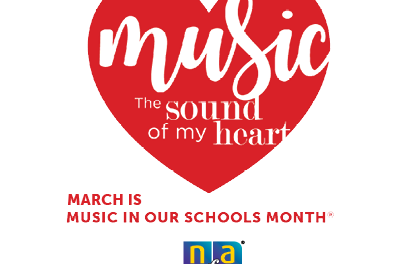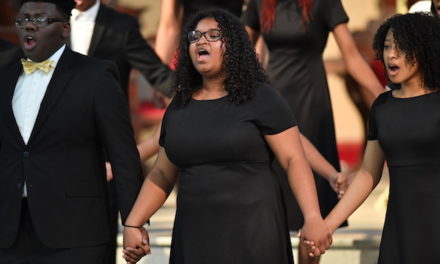Students with an entrepreneurial vision, songwriting and composing skills, are as highly recruited as those with advanced music theory knowledge. Students are becoming more aware of the many career paths available to them in the music entertainment industry: movies, television programs and commercials, podcasts, video games, streaming content, and recordings. And high schools are finding they need to incorporate instruction in composition, orchestration, arranging, and songwriting into class curriculum to help the student make college and career decisions. So what does that mean for the scholastic music educators?
Scholastic music educators–choral directors, band directors, and orchestra directors—now need to incorporate arranging and songwriting in their curriculum from early grades through high school to give their students a competitive edge in the collegiate application and audition process. Students with these skills are in high demand, and in fact, several Schools of Music over the past five years have offered scholarships to songwriters and rappers because of their potential ability to bring copyright and publishing royalties into their coffers. Several universities have stated that a student’s advanced placement theory credits are weighted less in the admission decision process than a songwriting submission, especially if the song follows proper song structure.
Additionally, many School of Music and Music Department recruiters are looking for students with an entrepreneurial mindset. Recruiters have realized the US media and entertainment industry is the largest in the world and there are now over 20 colleges or universities offering an undergraduate degree in Music Entrepreneurship. At $717 billion (in 2019) in the US alone, music represented 1/3 of global media and entertainment. This industry includes motion pictures, television programs and commercials, broadcasts, radio, video games, and ancillary services and products. In 2019, the music industry was ranked 11th in the US economy and it is predicted the industry will reach more than $825 billion by 2023.
Collegiate music education is a business. Colleges, universities, and conservatories must make a profit. A growing trend among many Music Departments is to have publishing and recording companies within the department, where they publish new music from professors, students, and alumni, as well as educational resources and curriculums. Music Departments also depend on tuition and student fees, such as lab fees and tutoring fees. And they sell services—master classes, camps, symposiums, and ensemble weekends—as well as showcasing seniors in musical theatre before Broadway producers, opera singers in New York for talent agencies, and instrumentalists before the American Symphony League.
The face of collegiate recruiting has changed and will, in light of COVID-19 and its repercussions, continue to evolve. Scholastic music educators will find themselves with new challenges as they strive to help students and their parents navigate the collegiate music application and audition process.
ScholarshipAuditions.com is the premier site for resources for teachers, parents, and students to help in this new, evolving world. And we are proud to announce that Eric Martin, former CEO of Music for All, has joined ScholarshipAuditions.com as its President. Mr. Martin and Randall Bayne, founder and CEO, are committed to assisting students, along with their teachers and parents, navigate these ever-changing and somewhat treacherous waters to find the scholarship opportunities best suited for their career goals. Visit ScholarshipAuditions.com today and explore the possibilities and connections available to help you and your students, especially during this challenging year.



